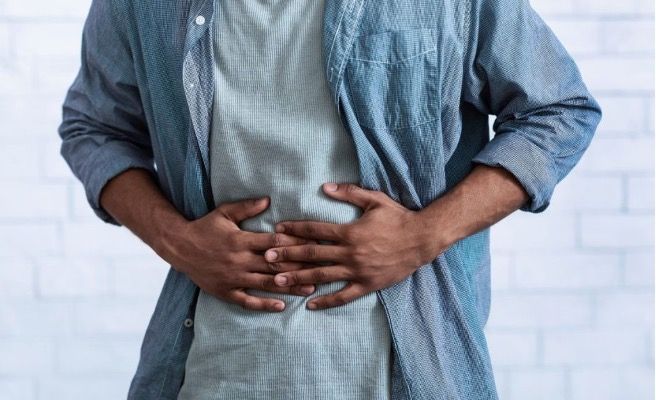Causes of Hemorrhoids
Signs & Symptoms of Hemorrhoids
6/13/2024
8 Causes of Blood in the Stool
What are the causes of blood in the stool?
- Hemorrhoids
- Fistulas
- Fissures
- Proctitis or colitis
- Prolapse
- Polyps
- Internal bleeding
- Rectal or colon cancer
Seeing blood from the anus or rectum brings anxiety to those who have experienced wiping their anal and saw blood in the tissue or the stool, making them think they have severe sickness. Eating foods such as tomatoes and blackberries can give your stool the presence of blood, and this should not occur after 1-2 days.1
Unfortunately, there are other causes of blood in the stool. If it’s bright red blood then it might indicate bleeding in your lower rectum or colon. When it’s darker red blood, this is a sign of bleeding in the small bowel or upper colon. The serious sign is when you see black-red blood which means there’s bleeding in your organs in the digestive system.1
One of the causes of blood in the stool is hemorrhoids. Read this blog to know more about it and the other anal causes, as we also discuss how to treat them.

Hemorrhoids
Hemorrhoids are the common causes of rectum bleeding. Unfortunately, anyone of any age can develop this, but some are at risk of experiencing it.2 The risk factors are:
- Diarrhea
- Constipation
- Pregnancy
- Lifting heavy objects
- Sitting on the toilet continuously
- After a bowel movement
- Having low fiber
- Obesity
- Being over the age of 50
We have hemorrhoidal tissue inside our anal canals consisting of connective tissue, blood vessels, and muscle.2 So when you sneeze or strain, it expands to prevent feces from leaving your body and returning to its normal size. When it becomes enlarged, then that’s the start of hemorrhoid formation.2
MPFF: Diosmin + Hesperidin (Daflon® 1000)
The clinically proven treatment for hemorrhoids is MPFF: Diosmin + Hesperidin (Daflon® 1000). It heals the symptoms and makes you go back to your daily routine faster thanks to its micronization process.
Fistulas
The other cause of rectal bleeding is fistulas. It happens when there’s an abnormality in the opening or a pocket developing between your two neighboring organs. If the fistulas occur between the anus and rectum, or skin and anus, it discharges white fluid, bleeding your rectum.
To treat this, doctors recommend taking antibiotics, but if it becomes serious, surgery may be needed.
Fissures
Unlike fistulas, when tissues lining the anus, rectum, or colon tear, it results in pain and rectal bleeding. Constipation can also cause this, so, this often results in bright red blood when passing a bowel movement.2
A sitz bath, stool softeners, and a balanced diet can help reduce the symptoms. If it’s severe, you need prescription creams or undergo surgery.

Proctitis or colitis
When your rectum becomes swollen, it is usually painful, and bleeding—and proctitis happens. And when the tissues lining your colon become swollen, ulcerative colitis happens, causing open and progressive sores to bleed.
This gives discomfort and irritation, and antibiotics or surgery can help treat proctitis or colitis, depending on the case.
Prolapse
When your rectal tissues become weak, it makes the area of your rectum bulge or pushes forward outside of your anus, which causes pain and worst, bleeding. Anyone can experience this, but unfortunately, it’s females over 50 who have a higher risk of prolapse.
This can be treated through surgical intervention and by applying home remedies that treat prolapse.
Polyps
Polyps are tissue growths in the colon and rectum. It may sound like a severe condition, but it’s non-cancerous. Though, when your polyps grow, it causes inflammation, irritation, and minor bleeding.
When you undergo colonoscopy screening, which is a procedure where a doctor inserts a colonoscope into your rectum to check if there are abnormalities in your colon, a doctor will typically remove the polyps as a treatment.

Internal bleeding
Gastrointestinal disease can result in internal bleeding, causing you to have blood in the stool—that’s why it’s important to take care of your gastrointestinal organs by eating high-fiber foods, drinking plenty of water, and following your eating schedule.
If you experience internal bleeding, a doctor may require a colonoscopy.
Rectal or colon cancer
One of the indications of having rectal or colon cancer is seeing bright red to dark red blood in your stool. Fortunately, rectal cancer is curable if detected and treated early as well as colon cancer.2
Rectal or colon cancer causes swelling, irritation, and bleeding. Treating requires surgery or chemotherapy, depending on the severity of the case.2
Key Takeaway
It’s important to know the causes of blood in the stool to prevent anxiety, panic attack, or wrong thoughts that may also lead to wrong remedies or treatments. When you experience this, consult your doctor for further assessment and advice. If it is because of hemorrhoids, take MPFF: Diosmin + Hesperidin (Daflon® 1000) because it works and heals hemorrhoids symptoms. Check our other blogs for hemorrhoid treatment and tips!
References
- https://www.medicalnewstoday.com/articles/321023
- https://www.medicalnewstoday.com/articles/321023#causes
2026